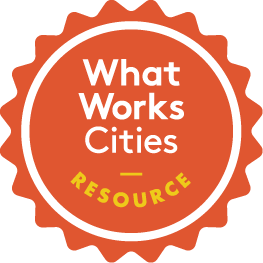Cities collect and store large amounts of data that is valuable to the public. Until recently, most data was locked away in filing cabinets and only released in response to information requests. An open data program makes city data easily accessible to anyone, at any time, through the internet.
Businesses, residents, visitors, and civil servants expect to have readily available data to aid decision making. Good open data programs meet these expectations while also delivering increased transparency and strong accountability. Open data programs help governments improve work processes, enable collaboration, and optimize service delivery by harnessing the power of data to create greater efficiency and better results for constituents. Cities aren’t simply providers of open data, they are consumers as well.
- Albuquerque publicly released 311 call data, which ultimately reduced call center volume and provided demonstrable benefit to residents.
- Pittsburgh shares real time traffic flow data to engage with community partners on transportation and environmental issues.
- San Francisco made maps from state highway patrol and health open data to illustrate high traffic injury areas, which in turn informed policy decisions.
By collecting and sharing data, a city can empower constituents to use data to address community concerns and help its own civil servants find innovative solutions to key challenges. Consistently sharing and using data to act on community interests can also lead to a culture of evidence-based decision-making in which data becomes essential for good governance.
To assist cities in implementing open data programs in their own communities, the Center for Government Excellence at Johns Hopkins University, a partner in the What Works Cities initiative, has created this getting started guide. By learning from the experiences of other cities and following best practices developed by the Center, cities will gain a greater understanding of open data and be well on their way to launching their own open data program.
